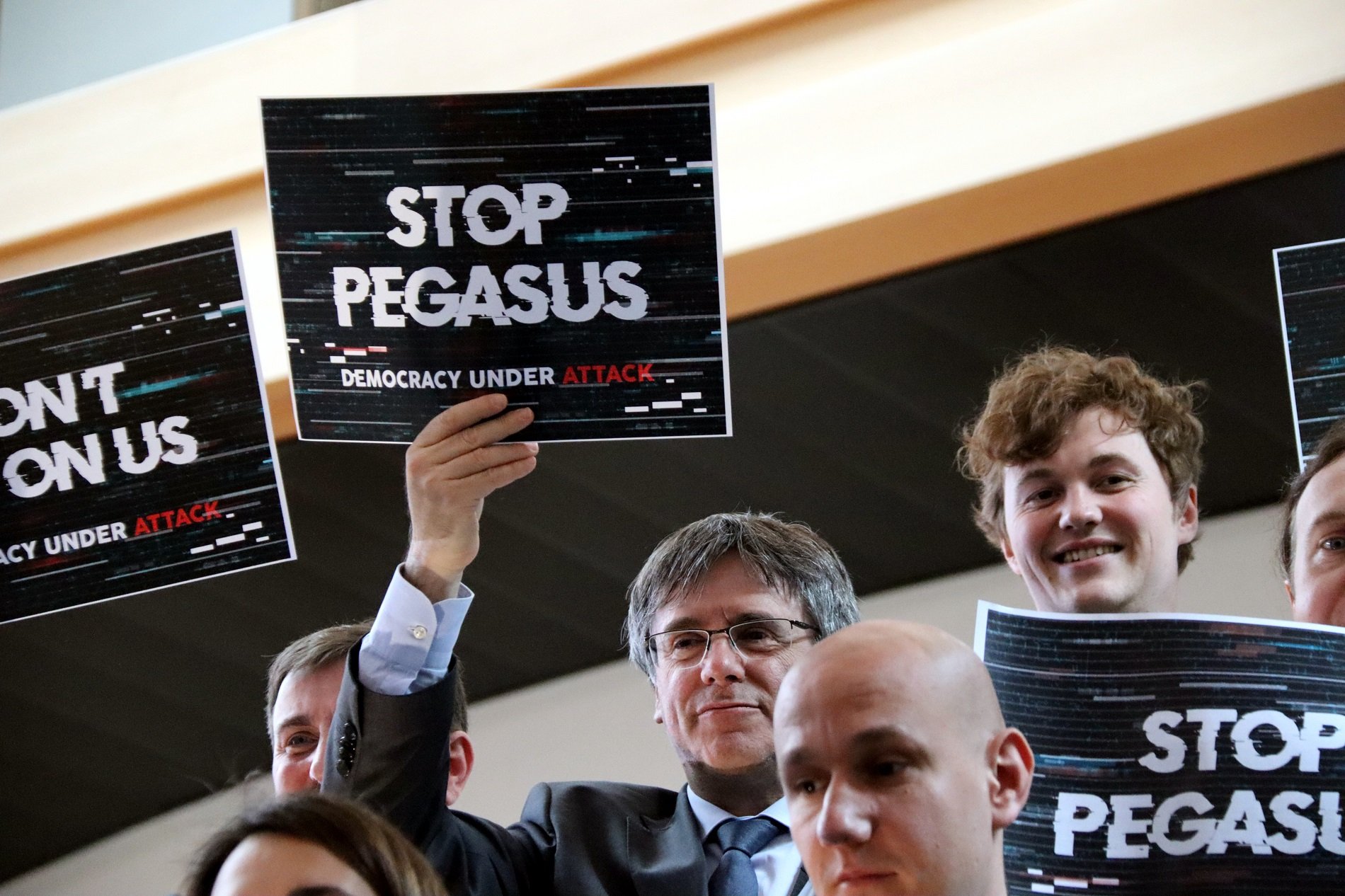After months of work, the committee of the European Parliament investigating the use of espionage with Pegasus spyware in different countries across the continent - including Spain and, in particular, Catalonia - has today presented its first conclusions in a report which directly points a finger at the Spanish government as the authority behind the espionage against 65 Catalan pro-independence leaders in the context of the case known as CatalanGate. After criticizing that the Spanish government has provided very little information about its use of Pegasus - which it justifies through a 'national security' argument that has not convinced the committee - the report concludes: "Based on a series of indicators, it is generally assumed that the surveillance of the Catalan targets was conducted by the Spanish authorities, mainly in connection with the 1st October 2017 independence referendum in Catalonia, and ensuing events". Going further, it also notes that the Spanish government was probably the first European Union client of the NSO group, owner of Pegasus.
In this first draft on the conclusions of the parliamentary committee, it is also very clear that, in the cases that affect the Catalan politicians, it has not been possible to establish in what way they would have been a threat to national security, the argument that the Spanish government uses to justify the use of Pegasus against the Catalan independentists. Of the 159 pages of the report, 12 are dedicated to the Spanish case, and not only to Catalangate, but also the espionage using Pegasus against the mobile phones of prime minister Pedro Sánchez and two ministers by Morocco. In this regard, a part of the text dedicated to Spain analyzes the work of the National Intelligence Centre (CNI), emphasizing that it is "a body that has been embroiled in a number of scandals relating to surveillance in the past". The text is a heavy blow to the Spanish government given that the European Parliament has no hesitation in indicating that all the signs suggest that it was responsible for the Catalangate espionage. It is assumed that this report, drafted by Sophie in 't Veld, a Dutch liberal MEP, will receive amendments, including from her liberal group colleagues from Spain's Ciudadanos party, who are not at all comfortable with these words.
Espionage at key political moments for Catalonia and Spain
The text, which In 't Veld later explained in a press conference emphasizing that the conclusions are provisional, refers to a "clear pattern" in the hacking of devices belonging to key people in the Catalan independence movement: "Most of the CatalanGate attacks coincide with, and relate to moments of political relevance, such as court cases against Catalan separatists, public rallies, and communication with Catalan separatists living outside Spain" - thus, Pegasus infections against independentists took place around the time of the 1st October referendum, the court cases against the pro-independence political prisoners and the mass demonstrations after their conviction, as well as surveillance of communication with the exiled pro-independence leaders such as Carles Puigdemont, whose closest contacts and advisers were found to have been subject to multiple Pegasus attacks in the CatalanGate report, while he himself has recently announced evidence that his own phone was infected with Pegasus.
The draft EU parliamentary report also underlines that the Spanish government has only recognized 18 of the 65 cases of espionage that were uncovered last April, when the Canadian research centre CitizenLab made public the entire list of people spied on in a scandal of unprecedented scale, one of the most important cases of mass espionage in history. Specifically, 10 days after this list became known and amidst great pressure from Catalan politicians for the Spanish government to recognize that it had used Pegasus to spy on them, it was learned that the Spanish government had authorized the CNI to hack the telephones of 18 people, including current Catalan president Pere Aragonès and those close to the former president Carles Puigdemont in Belgium: "Considering that the authorities have only pursued 18 out of 65 cases, it is not possible to establish how they would have had an immediate impact or constituted an imminent threat to national security or the integrity of the state," the text summarizes. For this same reason, one of the recommendations made by the report author is that a common Europe-wide definition should be made of what "national security" constitutes, in order to determine how to treat these kinds of cases.
"Fast-paced" processing of Spanish government cases, "slow" for pro-independence parties
This is not the only anomalous aspect in Spain's claims which the report is holding up before the Spanish government. It also points out the difference in speed when it comes to the legal processing of the espionage accusations from members of the Spanish government spied on by Pegasus, probably by Morocco, compared to the complaints presented in Barcelona by the pro-independence parties. "In contrast to the fast-paced nature of the case taken by Sánchez et al. in Madrid, the cases that have been filed in Barcelona by Catalonian victims of spyware are moving at a slow pace," denounces the Dutch MEP, author of the draft report. In this regard, she cites the protest of Andreu van den Eynde on the case of Oriol Junqueras, who has accused the justice system of wanting to paralyze his case.

